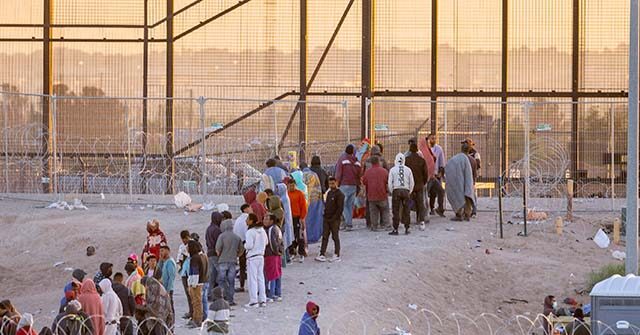A recent Rasmussen Reports survey highlights a significant divide within public opinion regarding the use of FEMA funds. The survey asked a key question about whether it would be preferable for FEMA to allocate its resources to aid Americans affected by natural disasters or to support migrants. As a result, 59 percent of respondents supported the idea of FEMA prioritizing help for Americans impacted by disasters, while only 29 percent approved spending FEMA money on immigrants. However, a notable finding was that a majority of Democrats, at 59 percent, favored the redirection of funds to assist migrants, contrasting sharply with the views held by most Republicans (88 percent) and independents (62 percent), who strongly preferred that FEMA focus solely on domestic disaster relief.
The survey was conducted between October 6-8 among a sample of 1,442 likely U.S. voters, holding a margin of error of plus or minus 2 percent. This finding reflects broader concerns related to the allocation of federal resources during a critical time when natural disasters are ongoing, as highlighted by recent statements from the Department of Homeland Security Secretary Alejandro Mayorkas. He expressed concerns regarding FEMA’s funding capabilities amid the hurricane season, stating that FEMA could potentially exhaust its resources, despite the Department of Homeland Security receiving $640 million specifically for addressing issues linked to illegal immigration.
The ramifications of this funding discussion are particularly pressing given that the hurricane season continues until November 30, raising questions about the adequacy of resources when faced with imminent storms. Critics of the current funding distribution have raised alarms about the apparent misallocation of funds, with Florida Attorney General Ashley Moody accusing federal officials of redirecting emergency resources away from disaster relief efforts. Moody’s assertion is rooted in a broader narrative about how federal programs intended for disaster assistance have reportedly been repurposed for immigration-related expenditures, which she termed as “laundering” of governmental funds.
Moody’s comments reflect a growing frustration among those who advocate for the primacy of American disaster relief, insisting that the focus must remain on supporting citizens affected by severe weather and other emergencies. At the same time, FEMA Administrator Deanne Criswell sought to address concerns regarding funding adequacy, asserting that FEMA does possess sufficient resources to respond effectively to the ongoing disasters, including Hurricanes Helene and Milton. This assertion, made amid rising public scrutiny and political contention, aims to reassure the public and counter accusations of mismanaged funds.
The differing opinions within the political spectrum regarding FEMA’s responsibilities to American citizens versus migrants provide a window into the complexities of immigration policy and disaster management. The stark contrast, particularly among party lines, reflects broader national debates over immigration, just as the federal government contends with the pressing realities of natural disaster preparedness and response. As hurricane season unfolds, the allocation of resources becomes not only a question of financial management but also of moral and political considerations, which could influence electoral dynamics in the near future.
In conclusion, the survey underscores an important national issue at the intersection of disaster aid and immigration policy. As political leaders and citizens engage with this debate, the implications for federal funding priorities, the responsibilities of agencies like FEMA, and the well-being of both American citizens and migrants remain critical areas of discussion. Balancing the immediate needs of hurricane-affected communities with overarching humanitarian concerns continues to challenge lawmakers and condition public opinion, setting the stage for further discussions as the political landscape evolves towards upcoming elections.

